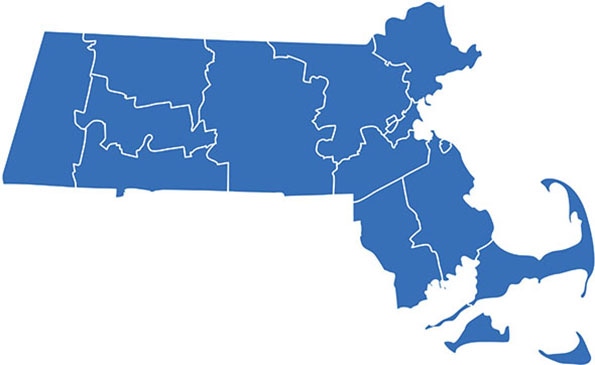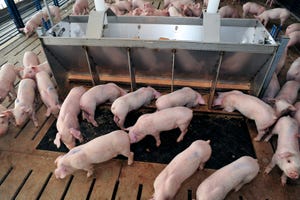Midwest pork producers seek partial ruling in Q3 lawsuit
Plaintiffs say the statute discriminates against out-of-state economic interests and is a violation of the dormant Commerce Clause.

A group of Midwest pork producers who are challenging Massachusetts’ Question 3 constitutionality, has filed a motion requesting that the federal district court grant partial summary judgment on the plaintiffs’ dormant Commerce Clause Claim. In the motion filed over the weekend, Triumph Foods; Christensen Farms Midwest, LLC; The Hanor Company of Wisconsin, LLC; New Fashion Pork, LLP; Eichelberger Farms, Inc.; and Allied Producers' Cooperative also requested an oral argument and expedited briefing schedule.
The plaintiffs emphasized the defendants should be required to submit an opposition brief on or before Nov. 3 at 6 p.m.
Passed by Massachusetts voters on Nov. 8, 2016, Q3 imposes confinement requirements on out-of-state pork producers and prohibits the sale of pork meat within the state from offspring of an animal confined in a manner inconsistent with Massachusetts' requirements, regardless of where in the nation the animal was raised.
The lawsuit filed July 25, challenges Q3 as well as the overall constitutionality of similar laws such as California's Proposition 12. In the May 2023 opinion on Prop 12, the U.S. Supreme Court raised concerns about other possible constitutional violations that may exist. The plaintiffs say this left the door open to address the constitutionality of laws like Q3 and Prop 12 through other claims.
"Discriminatory trade restrictions like Q3 and Prop 12 affect the ability to build resilient, reliable food supply chains across the United States," said Triumph Foods President and CEO Matt England. "They also hurt many small businesses, employees, consumers and government-funded agencies. Free and fair interstate commerce is vital for the economic prosperity of our country."
The plaintiffs say there are two ways to demonstrate a violation of the dormant Commerce Clause:
A plaintiff can demonstrate that a statute discriminates against out-of-state economic interests for the benefit of in-state economic interests.
A plaintiff can demonstrate that the law violates the balancing test the Supreme Court announced in Pike v. Bruce Church, Inc., 397 U.S. 137 (1970), which asks whether the burdens on interstate commerce outweigh the putative local benefits of the statute.
The pork producers contend the first is a demonstration of discrimination in this case and is the sole focus of the partial motion for summary judgment.
In the motion, the plaintiffs stated, “Massachusetts is absolutely entitled to regulate farming practices at farms within its borders. But it cannot do so in other states, which is precisely what the Act does. In doing so, it discriminates against out-of-state economic interests to the benefit of its own economic interests.”
On Sunday, attorneys representing Massachusetts responded, opposing the plaintiffs’ deadline request for partial summary judgment, and requesting that the court instead set a deadline of Tuesday, Nov. 7, for defendants to file an opposition to the motion. The attorneys stated that the “additional two business days beyond plaintiffs’ proposed deadline will account for review by the Massachusetts Department of Agricultural Resources and within the Attorney General’s Office that is required for all substantive filings made by the Office of the Attorney General.”
Thirteen state attorneys general filed a brief in support of Q3 plaintiffs on Oct. 10. The attorneys general contend that the new ban will cost pork producers across the country hundreds of millions of dollars, drive many pork producers out of business, and dramatically raise pork prices. The coalition also says the new ban sets a dangerous precedent that would allow states to upend markets across the nation based on their political agendas.
About the Author(s)
You May Also Like





